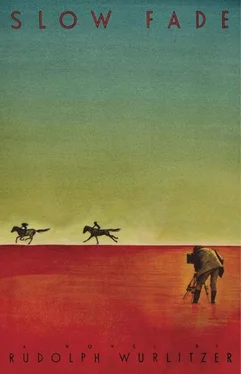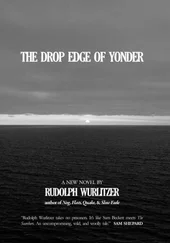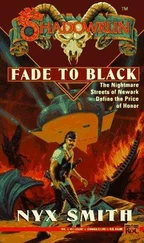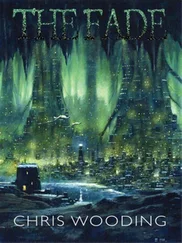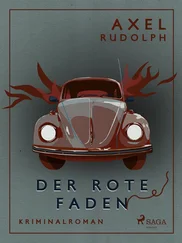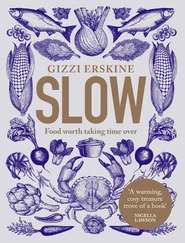“Evelyn,” Wesley said. “Sheila someone or other. An old associate of mine.”
“You’ll never forgive me for that lawsuit, will you?” Sheila asked.
“I never mind lawsuits,” Wesley said. “Even between friends. It’s who you have been revealed to be that’s unforgivable.”
“That’s true,” A.D. interjected, trying to get into the flow. “I’m suing him myself.”
“There you go,” Wesley said. “And this man is my producer.”
“I heard you had another project launched,” Bud Serkin said. “I must congratulate you on that. India or someplace, isn’t it?”
“India. My son is scripting it.”
“We have about twenty million in frozen rupees over there. I wish we could arrange for you to spend some of it for the studio, but with all the litigation surrounding you these days that’s clearly impossible.”
“We’ll set up a meeting anyway,” Sheila said. “You never know when one meeting might mutate into another, thus a project is born. Henry will see to it, won’t you, dear?”
She patted the blond young man on the cheek. He nodded and made a note on a slip of paper with a gold-tipped pen.
“No meeting,” Bud Serkin said. “But a dinner would be lovely. It’s time for some sort of retrospective for Wesley. A testimonial. Hawks and Hitchcock had one. I even think old Sam Fuller must have had one.”
Sheila finished patting the young man’s cheek and smiled at Wesley. “Then you, too, will be buried alive.”
Wesley nodded, not bothering to reply. He felt himself being pulled away as if he were floating above them, looking down on himself as well. From a distance he became aware of their words but was unable to distinguish any separate meanings so that the language flowed together into one sound, joining the larger sound of the room. He had the thought that he was wheeling above them for a crane shot, and he found it funny that the actors should be so out of control beneath him. He tried to form the words “who’s directing?” but the words wouldn’t form or they weren’t hearing him. “Wesley, Wesley,” it was Evelyn’s voice, reaching out to him. But it was too late.
“For god’s sake, why do you let him go out in this shape?” Wesley dimly heard Sheila ask Evelyn. “He’s on his last legs.”
“He does what he wants to do,” Evelyn said matter-of-factly.
“Oh, rubbish. You can’t just let him get drunk and pass out on the table like some kind of degenerate.”
Evelyn stared hard at Sheila, so that Sheila had to lift up her glass and look away. “It’s not that I give a damn,” Sheila said. “It’s just that it’s distasteful and unnecessary.”
“I agree,” Wesley said thickly. “If you want a deal talk to my producer over here.”
“I’m not making a deal with anyone,” A.D. said. “Not even myself.” He helped Wesley out of his chair and all three of them made their way back through the crowd and onto the street.
They walked toward Seventh Avenue until Wesley became dizzy again and sat down on the steps of Carnegie Hall. To one side a blind violinist in a New York Yankees cap played the Bach Chaconne.
“Are you in pain?” Evelyn asked.
“Not hardly,” Wesley replied. As if to prove his point he stood up and tapped the violinist on the shoulder. Handing him a wad of bills, he took up the violin and started to play, the bow scratching over the strings as he sang in a hoarse baritone:
“ ’Twas on the tenth of March, my friend,
As you may understand.
Two men from Labrador
Started for Newfoundland.
’Twas eight o’clock in the morning
As they left Point Amour,
To travel across those gloomy straits
Those men from Labrador.
They had four dogs and a komatik
And a little canvas boat.
A mail bag and three nights’ grub
And that was all she wrote.”
He handed the fiddle back and started out again for Fifty-ninth Street. When they reached the park he turned and walked inside. A.D. angrily watched him go. “What kind of a joust is that? That might play in Hollywood or up there in Labrador, but that won’t last an hour on my street.”
Evelyn sat down on the same bench they had shared before, the one facing the Plaza. She shut her eyes, as if wanting to shut it all out.
“So I say, what am I fooling around making deals with him for?” A.D. went on, sitting down and impulsively picking up her hand.
“He might have one film left in him,” she said, opening her eyes and looking at him.
He asked her if she wanted a drink and when she said yes he took her downtown.
“He must have put a special hook into you for you to put up with all his jive,” A.D. said in the cab. “Great man that he is.”
“No hook,” she said and smiled. “When I was a kid we used to play a game called Green Gravel. We’d hold hands and go around in a circle. The person whose name you said would have to turn and go around with his back to the circle. Then we’d all sing:
“Green gravel, green gravel.
The grass is so green.
And all the fair ladies
Are shamed to be seen.
Oh, someone, oh, someone.
Your true love is dead.
I’ll send you a letter
To turn ’round your head.”
“Are you trying to tell me someone’s dead?” A.D. asked as they got out of the cab at Sheridan Square and entered a dimly lit bar-restaurant.
“Not really,” she said. “Just that I don’t really believe in true love.”
A thin, middle-aged black woman sat behind the piano and sang sad songs in a small plaintive voice. They sat through the set and had several drinks, and when A.D. asked Evelyn for her back story she sighed and said that she didn’t like to get into any of that but then she had another drink and told him anyway.
“My father was Eskimo. My mother German. She came to Labrador as a nurse on the Moravian freight boat and she stayed on when she met my father. They started a trading post up on the northern end of Labrador, near Hebron. It was a lonely place, but there were five of us kids and we roamed pretty wild and never seemed to mind the isolation. When we got older we always made a point of coming home at the end of the summer and helping out however we could, and then we would all get into my father’s boat and spend a few weeks hunting and fishing. This one summer I had come up from St. John’s, where I had been laid off from clerking in a store and was waiting for an opening as a schoolteacher. Everyone was there but my oldest brother, who was off working on a trawler, so when we set off we had a full boat.
“Two days after we landed up at the inlet where we kept a fishing shack a big thunderstorm came down and the lightning struck the boat, went down the mast, burned a hole through the boat, and blew the radio to pieces. So we were cut off, but we didn’t think much about it, my father going ahead fixing the boat while my two younger brothers went inland to fish on one of the lakes and maybe get some deer or caribou. I stayed around the shack with my sister and mother, helping my father a little and cooking and picking berries and putting in a supply of wood. It was all work we were used to and none of it was hard and we were having a good time when my youngest brother, Duncan, walked in and collapsed before we could get him inside the shack. He was shaking and having trouble breathing, and he said that my other brother, Early, had the same thing but was too sick to come in. A few hours later his lungs gave out and he couldn’t catch his breath and he died. My mother thought it might be the Spanish flu, which is a terrible thing in those parts. One time it took nearly half of Labrador away in an epidemic.
“After we buried Duncan we set out for Early. We found him a day later and he was almost dead. My mother had her doctor’s bag and she nursed him for two days, but finally he rolled over and died. By that time my mother had figured out it might be something to do with the water they were drinking, because the lake had a pink cast to it. People always used to say the army had dumped some chemicals up there years before and a few Eskimo and Indians had died from unknown causes, but no one ever did anything about it. My father told the Department of Lands and Forest but that was about it.
Читать дальше
